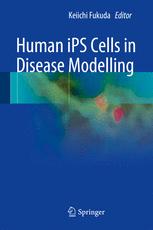

Most ebook files are in PDF format, so you can easily read them using various software such as Foxit Reader or directly on the Google Chrome browser.
Some ebook files are released by publishers in other formats such as .awz, .mobi, .epub, .fb2, etc. You may need to install specific software to read these formats on mobile/PC, such as Calibre.
Please read the tutorial at this link: https://ebookbell.com/faq
We offer FREE conversion to the popular formats you request; however, this may take some time. Therefore, right after payment, please email us, and we will try to provide the service as quickly as possible.
For some exceptional file formats or broken links (if any), please refrain from opening any disputes. Instead, email us first, and we will try to assist within a maximum of 6 hours.
EbookBell Team

0.0
0 reviewsHuman iPS cells have a great potential to be cell sources for regenerative medicine because of the promise of infinite self-renewal and the capability to differentiate into multiple cell types. This book focuses on another great potential of human iPS cells, which is the establishment of human disease models using patient-specific iPS cells. Human iPS cells can be easily obtained from a patient’s somatic cells and provide the entire information on the patient’s genome. Accordingly, we can generate disease models for inheritable diseases in cell culture dishes using iPS cells. This is a quite new technique but holds tremendous potential for our increased understanding of pathogenesis, and will then be the basis for novel drug development industries. All the authors are leading researchers in this field and they have reported many kinds of patient-derived iPS cells. In this book, they introduce the aspects that could be recapitulated in terms of disease modelling as well as further innovative findings such as novel pathogenetic insights and novel therapies.